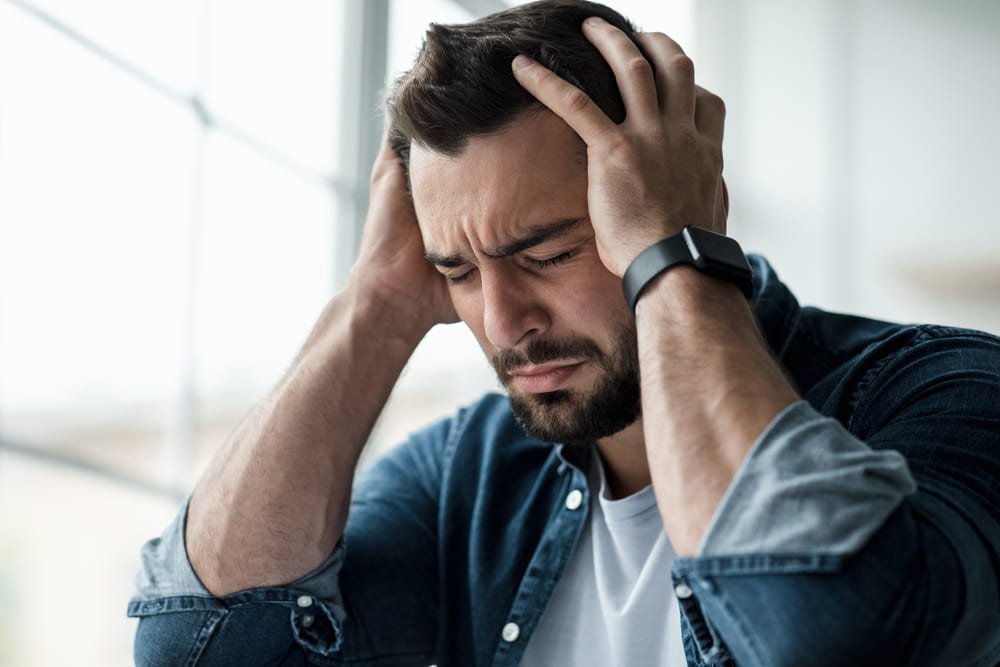
Agoraphobia is an anxiety disorder that causes people to become afraid of situations or places where it may be difficult to escape. The fear and panic can become so intense that sufferers avoid these places. For many, their comfort zones shrink to the point where they feel uncomfortable leaving their homes or bedrooms.
Researchers estimate that agoraphobia affects about 1.7% of the general population. Those who have this disorder often struggle to maintain relationships and employment. While challenging, it is possible to learn how to overcome agoraphobia.
Understanding and implementing strategies on how to overcome agoraphobia requires in-depth knowledge of this condition. With the right approach, tips, and strategies, it’s possible to help an agoraphobic regain control of their lives and freedom.
How to Overcome Agoraphobia
Seek Professional Help
If you’re looking for tips on how to overcome agoraphobia on your own, you’re not alone. Due to the nature of agoraphobia, it can be challenging to seek professional help. Self-help techniques can and do help, but a professional can give you the tools you need to overcome this disorder once and for all.
There are several options for professional treatment of agoraphobia, including:
Cognitive Behavioral Therapy
Cognitive behavioral therapy, or CBT, is one of the most common forms of treatment for agoraphobia. The goal of CBT is to break the cycle of negative thought patterns and behaviors and replace them with positive, constructive ones.
Many people with agoraphobia have a very real fear that they will have a panic attack that will kill them. CBT aims to change this belief. Although panic attacks are unpleasant, they aren’t fatal and will pass with time. Shifting thought patterns in this way can help you develop the strength and confidence to confront situations that would otherwise have frightened you.
Typically, CBT is paired with exposure therapy.
Guided Self-Help
Some people find that guided self-help works best. With this type of treatment, you may work through a CBT-based program or course under the guidance of a therapist. Your therapist will also help you get to the root of the issue and start making positive changes in your life.
Applied relaxation techniques can also help you learn to relax in situations that would otherwise cause severe anxiety.
Practice Relaxation Techniques
Practicing relaxation techniques can help you learn to stay calm in stressful situations. Applied relaxation techniques will teach you how to relax through a series of exercises.
The goal is to:
- Learn how to recognize signs of panic or tension.
- Relax your muscles to help alleviate that tension.
Once you have mastered these two exercises, you can use them in your daily life to prevent panic attacks and break the cycle of fear.
Applied relaxation techniques aren’t the only option here. Other effective relaxation techniques include:
- Deep breathing
- Visualization
- Stretching exercises
- Active relaxation
Create a Hierarchy of Anxiety-Provoking Situations
Exposure and desensitization will play a big role in the treatment process, but the process must be gradual so that the condition isn’t exacerbated. Creating a hierarchy of anxiety-provoking situations is a great place to start.

Begin by creating a list of situations that make you anxious. These situations can be anything, from leaving your bedroom to dining in a busy restaurant.
Place the most anxiety-inducing situation at the bottom of the list and work your way up to the least disturbing situation at the top of the list.
With this list in hand, you can start working on exposure therapy in a gradual and intelligent way.
Practice Gradual Exposure Therapy
If you’ve been suffering from agoraphobia for months or years, it’s understandable that you want to learn how to overcome agoraphobia fast. However, this disorder requires gradual exposure to situations you are mentally and physically prepared to confront. Moving too quickly could set back your progress.
Practicing gradual exposure therapy will help you face each situation on your hierarchy of anxiety-provoking scenarios.
Begin with the first item on your list and sit with it until you feel confident that it no longer causes anxiety.
Focus on Self-Care
Self-care is crucial to recovery and freedom. Stories (like this one) are not uncommon. In the story, a woman was confined to her bed for years. Through therapy and professional help, she was able to leave her room after 21 years.
While this is an extreme case, it shows just how easy it is to lose control of a person’s own self-care.
Practicing self-care can mean a lot of different things, including but not limited to:
- Exercise: Routine exercise is an important part of self-care because it’s easy to stay in the confines of your home. Set aside 30 minutes, three or more times a week, to exercise. Activity will keep muscles strong and bones healthy, but more importantly, studies show that engaging in exercise helps with severe depression.
- Work on Your Self-esteem: A loss of self-esteem is very common for anyone who isolates, judges or compares themselves to others. Joining groups and finding ways to boost self-esteem is an integral part of self-care.
When agoraphobia does not confine a person to their home, one of the often-mentioned things that help sufferers is a pet. Service dogs accompany their owners, help relieve stress and anxiety and allow many sufferers to progress quickly through their treatment.
Building a support system is also one of the best things you can do to overcome fear, anxiety, and the feeling of hopelessness, even if this support system is an animal.
Celebrate Progress
Learning how to overcome agoraphobia quickly is not easy. Agoraphobia often lasts for years after the triggering event, but this anxiety disorder must be addressed immediately after it’s first diagnosed.
Progress is slow and it can often feel like you’re not getting very far.
Celebrating progress is an excellent motivator that will help you or someone you love continue the fight to overcome agoraphobia. One of the habits of a person suffering from this anxiety disorder is that they’ll judge themselves or compare themselves to others.

You have strengths – and weaknesses – that others do not have.
If you experience the telltale signs of an episode, such as feeling shaky or having a rapid heart rate, and can get the symptoms under control, celebrate this progress. Over time, these celebrations will become more frequent as the condition improves.
Summing Up
Anyone learning or trying to teach someone how to overcome agoraphobia must remember that it takes time to control symptoms and return to a place of normalcy. Regaining freedom can happen if you remain consistent, celebrate progress, build a support system, seek cognitive behavioral therapy, and work with a professional.